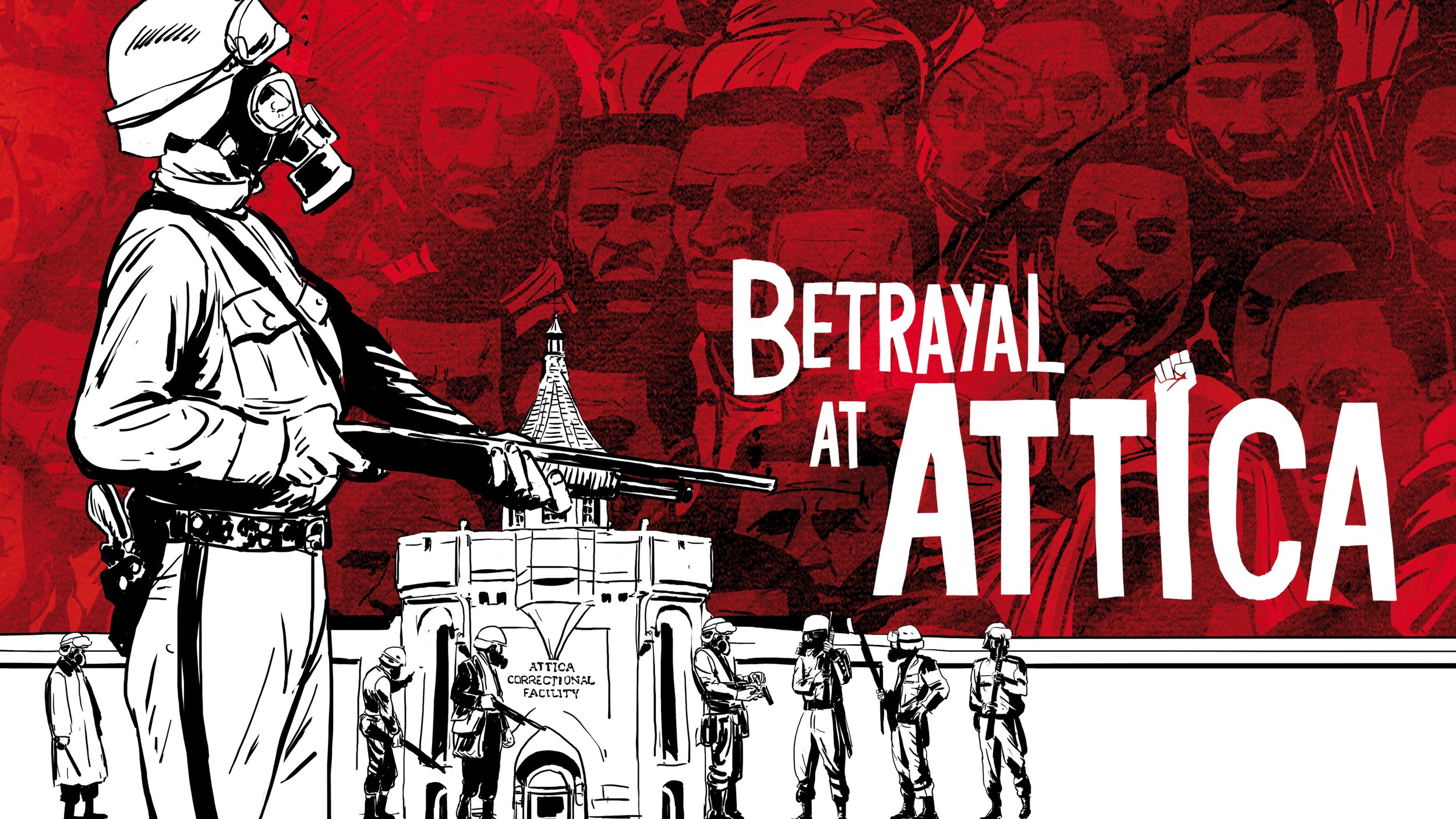Poster image for Betrayal at Attica on HBOMax
Fifth Column Films is proud to announce that our feature documentary Betrayal at Attica is now available on HBOMax!
On September 13, 1971 the State of New York shot and killed 39 of its own citizens, injured hundreds more, and tortured the survivors. The events of the riot and rebellion at Attica Prison have been extensively documented in books, television, and film. What remains unexplored is the way the retaking of D Block set the stage for militarized modern policing and the race- driven policies that underlie our prison system still.
Elizabeth Fink, attorney for Attica Brothers Legal Defense, is our guide to the missing context of the era.
In her final interview, filmed one month before she passed away at age 70, Fink describes growing up a Jewish Communist under the expanding sky of the Civil Rights movement. As the bus boycotts of the 50s turned into the Vietnam protests of the 60s, Fink dedicated herself to revolution based on the liberation of America’s oppressed minorities. The law would be her weapon, and the courtroom her battlefield.
Among her many victories was the discovery of a cache of evidence from Attica that was hidden by the State of New York for decades. In the collection are hundreds of photographs, including autopsy records, clear depictions of torture by State troopers, and over an hour of on-scene footage shot by a Corrections Officer with an early video camera. This material was used by Fink in Attica related cases over the years and it is the foundation of Betrayal at Attica, a documentary film now available on HBOMax.
Betrayal at Attica is a documentary film featuring Elizabeth Fink, longtime lawyer for Attica Brothers Legal Defense. The movie is focused on evidence of premeditated murder by the State of New York at Attica prison, and the decades-long coverup that followed. During the 30 years of court battles after the Attica prison rebellion the State of New York routinely claimed all evidence of their crimes had been lost or destroyed. By doggedly searching through tons of warehoused material Fink discovered thousands of photographs and dozens of VHS recordings that had been hidden away. The State of New York continues to deny the existence of this material, but this film, built around Fink's archive and final on-camera interview, sets the record straight for all to see.
Guards overlooking the yard.
Other archival material includes a documentary film released by the McKay Commission, a group put together by Governor Nelson Rockefeller to study the causes and impact of the Attica riot. The McKay film provides valuable insight on the perspective of key players in the immediate aftermath. What the state record redacts, Fink fills in, like the names of troopers who sought out inmates for execution.
By combining gruesome on-scene records with Fink’s intimate recounting of the botched operation the film presents an unvarnished radical perspective on an event that cannot be properly described using the language of the superstructure. From her vantage point we can see how modern policing was born.
“The State troopers and the guards who killed 39 people were never prosecuted. They didn’t register any firearms, they told troopers to put tape over their name tags so no one could tell who was shooting. They bulldozed evidence. They murdered all of these people and then did everything they could to cover it up.
And we proved that in court.”
Fink was also a major source for Heather Thompson’s book Blood in the Water, Pulitzer Prize winner for History in 2017.
Thompson drew from the same archival resources presented in Surrender Peacefully and came to a similar conclusion: that Attica laid the philosophical and legal groundwork for the ravages of the war on drugs, a race-based theory of criminality designed to destabilize and incarcerate the very people who were calling for changes to our American system.
The bombing of the MOVE organization in 1985. The Los Angeles Police Department Ramparts Division. Chicago PD’s torture black site Homan Square. Ferguson. American policing now uses the language and tools of war against it’s own citizens. Documenting these moments in real-time is key, but placing them in context is vital to exposing the operational patterns of oppression that have ruined countless lives and remain a blotch on our grand national ideals.

